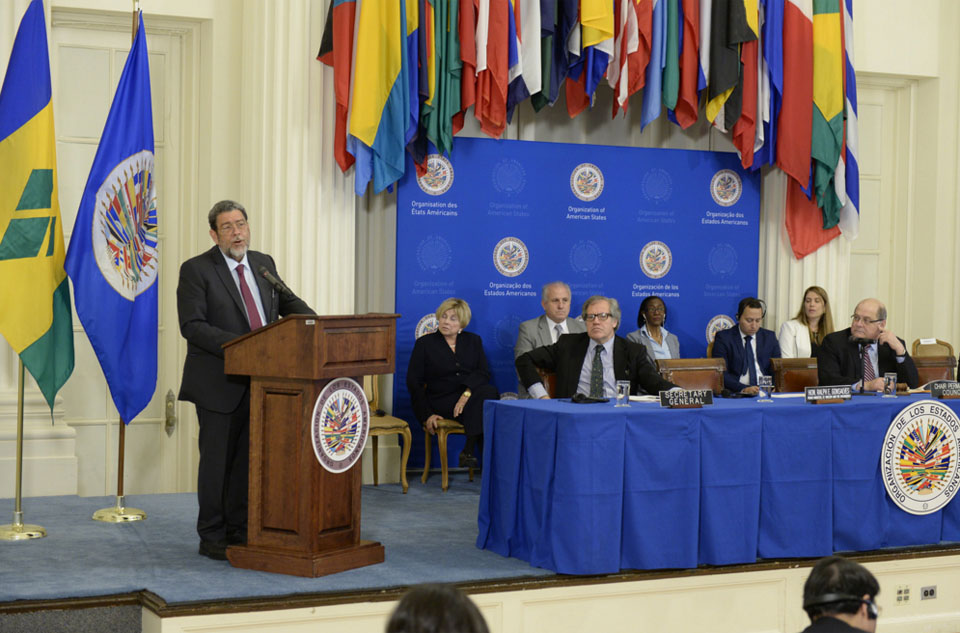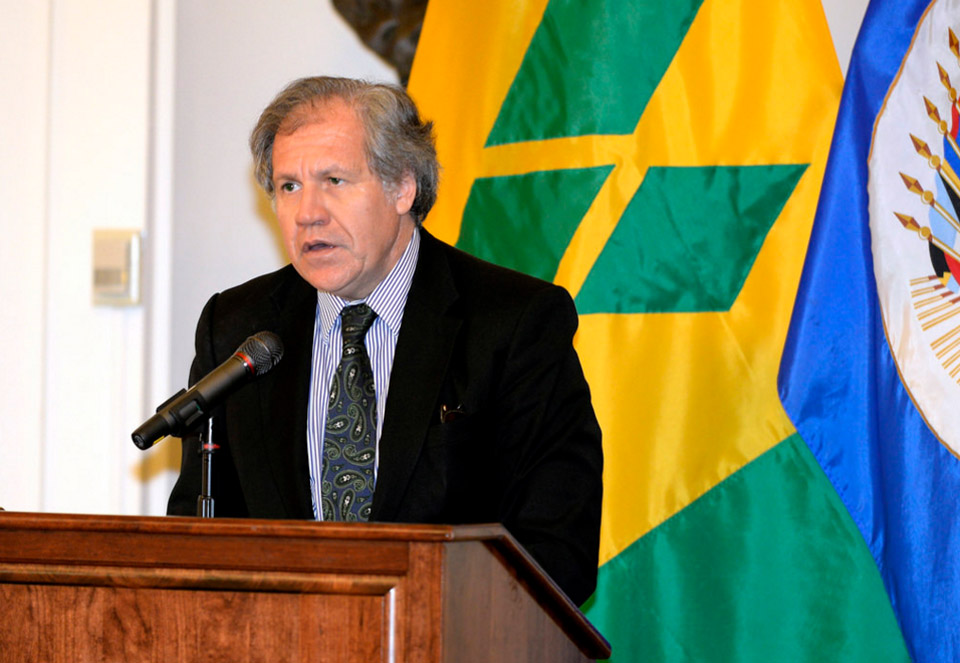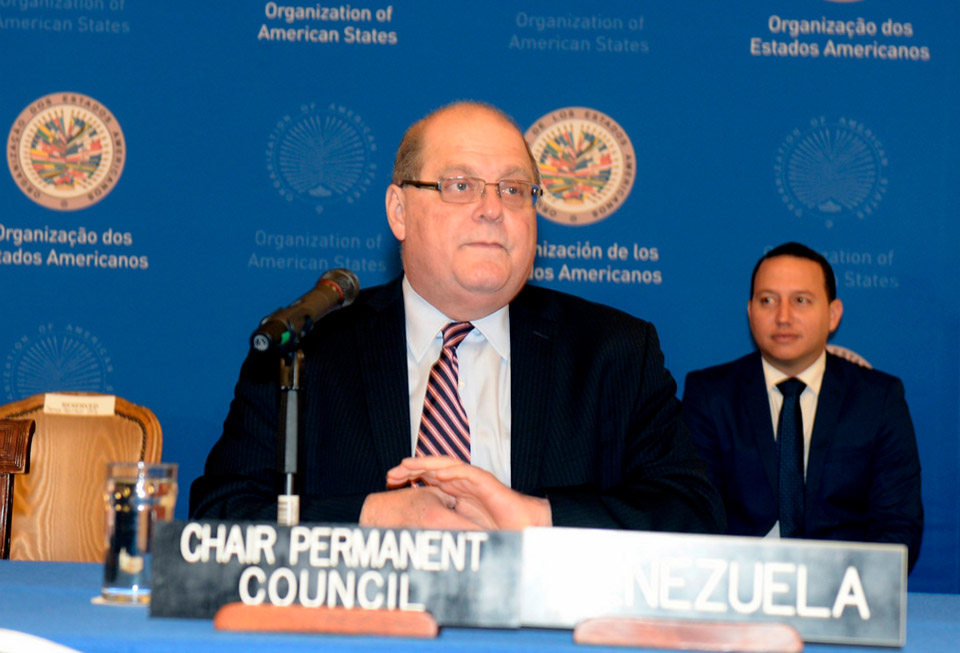- English
- Español
Media Center
Feature
OAS Heard Claim for Native Genocide and African Slave Trade
November 6, 2015The reparation claim against some European countries—mainly Great Britain, France, and the
Netherlands—for the native genocide and the African slave trade between the 17th and 19th centuries was presented this week at the OAS by the Prime Minister of Saint Vincent and the Grenadines, Ralph Gonsalves.
At the OAS Permanent Council, Gonsalves asserted that “the quest for reparations is not conceived as a strategic confrontation against these European nations, although it is for us in the Caribbean a defining issue in the 21st century for justice, reconciliation, and the righting of historic wrongs.”

Prime Minister Gonsalves explains to the OAS member states CARICOM’s claim against Great Britain, France, and the Netherlands for the native genocide and the African slave trade.
In his presentation, Prime Minister Gonsalves underscored that:
- CARICOM established a Reparations Commission to pursue the claim for reparations from European countries
- There is a need for a “mature conversation ” with those European nations in order to agree on an “appropriate recompense”
- The recompense is to correct the legacies of underdevelopment occasioned by the native genocide and the African slavery
- If European nations ignore the claim, CARICOM will take the case to the International Court of Justice of The Hague
- Various Asian, Latin American, and African countries support the claim
The OAS Secretary General, Luis Almagro, expressed his support to the claim of the Caribbean states. “We are aware that the official history of the Americas has been written at the expense of minority groups, especially Afro-descendants and indigenous peoples. From the beginning of the slave trade, colonizers removed the “soul” of these people, treated them as mere property, despised their culture, and attempted to eliminate their cultural heritage in order to dominate them,” he asserted.

Secretary General Almagro stated, “It is evident that the slave trade was a crime against humanity.”
Background
In 2000, the Declaration and the Plan of Action of Santiago were adopted during the Regional Conference of the Americas, known as the Conference of Santiago. This conference also served as a preparatory meeting for the Third World Conference against Racism, Racial Discrimination, Xenophobia and Related Intolerance, which was held in Durban, South Africa, in August 2001.
In Santiago, the American states recognized that slavery and other forms of servitude of people of African origin and their descendants, as well as indigenous peoples of the Americas, and the slave trade were morally reprehensible and, in some cases, were crimes under international law which, if perpetrated today, would definitely constitute crimes under international law.
Furthermore, the Declaration of Santiago recognizes that these practices have caused Afro-descendants and indigenous people considerable and lasting economic, political, and cultural harm and that justice requires now that important national and international efforts be made for the reparation of such harm. The reparation should be made through policies, programs and measures taken by the states that materially benefited from these practices and must aim at correcting the economic, cultural, and political harm inflicted to these communities and peoples.
The OAS Secretary General noted that the Declaration of Santiago “is a clear example of how a non-binding international instrument resulted in a series of important measures for the peoples of African descent at the national, regional, and international level. Among them, he mentioned initiatives within the inter-American system, such as:
- The Inter-American Convention against Racism, Racial Discrimination and Related Intolerance, adopted in 2013
- The creation of the Rapporteurship on the Rights of Persons of African Descent and against Racial Discrimination of the Inter-American Commission on Human Rights (IACHR)
- The work of the Department of International Law of the OAS Secretariat for Legal Affairs
- The OAS General Assembly’s and Summits of the Americas’ consecutive mandates on Afro-descendants.
For his part, the Chair of the Permanent Council and Permanent Representative of Venezuela, Bernardo Álvarez, expressed his support to the claim of the CARICOM countries. “This is a just claim that requires solidarity with and understanding of this agenda being promoted by our Caribbean brothers and sisters. The claim for reparation, which deals with serious human rights violations, is an issue that involves and concerns us all.

Ambassador Bernardo Álvarez of Venezuela, Chair of the Permanent Council: “This is a just claim that requires solidarity.”
Reference: E-334/15


